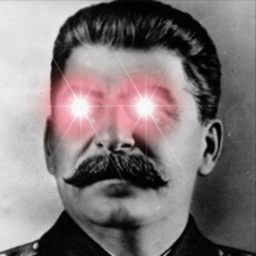

Classes, as per Marx, are foremost identified by the economical position of people, and not necessary a hierarchy as such, that’s a secondary effect of how classes happen to work towards their own self-interest. If, in an anarchist utopia, one population freely chooses to live in a high-tech skyscraper doing engineering work, and another neighbouring one grows coffee in the rain forest, then their economical position is vastly different and they have different interests, thus they are different classes, but that doesn’t mean that they need to be nasty to another.
Most importantly though this is all just arguing semantics and Marx didn’t get anarchism anyway, mixing the theoretical bodies is usually more headache than it’s worth.








Parents have natural bootmaker authority and if you want to be a good parent then you realise that the kids also have it: They, or maybe better put their genome, know how they need to be raised, and try to teach you, as well as (with increasing age) seek out the exact bootmakers that seem sensible. Worst thing you can do as a parent is to think that learning is a one-way street.